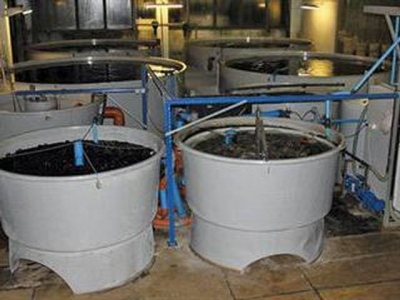Choosing the right aquaculture technology
Successful aquaculture is all about making a profit. Make sure your system is affordable and appropriate
 Moving fish
Moving fish Special care needs to be taken when moving fish in order to minimise their stress levels and thus prevent unnecessary deaths.
 Cold-tolerant tilapia can weather winter’s chill
Cold-tolerant tilapia can weather winter’s chill Taking tilapia cold tolerance ranges into account shows how just a few degrees can make for a worry-free season.
 Small scale fish farming
Small scale fish farming With government assistance, many rural small-scale fish farmers could turn their operations into viable enterprises.
 Why aquaculture is stressful for fish
Why aquaculture is stressful for fish Fish species that are adapted for rivers generally perform better under aquaculture’s challenging conditions. Why aquaculture is stressful for fish
 Comparing nutritional values of wild and farmed whitefish
Comparing nutritional values of wild and farmed whitefish The aquaculture industry is unique among animal agriculture industries in that there is a near-equal amount of wild-harvested and farmed seafood
 Near-infrared spectrometers determine stage maturity in channel catfish
Near-infrared spectrometers determine stage maturity in channel catfish Most fish do not reproduce readily under captive conditions because environmental conditions necessary for reproduction are not well understood.
 Weighing the risks of farming non-native fish species in India
Weighing the risks of farming non-native fish species in India The culture of some species such as pangasius (Pangasianodon hypoththalmus), Nile tilapia (Oreochromis niloticus), red-bellied pacu (Piaractus brachypomus)
 Transgenic fish are ready for us — are we ready for them?
Transgenic fish are ready for us — are we ready for them? Companies such as AquaBounty Technologies create fertilized salmon eggs with growth-enhancing DNA from other fish species.
 Model provides fisheries with solution to overharvesting
Model provides fisheries with solution to overharvesting Model developed that allows fisheries to net enough to meet rising consumer demand while ensuring adequate income and replenishment of natural stocks.
 5 ways companies are cleaning up fish farming
5 ways companies are cleaning up fish farming Companies from around the world lead the charge. Here are five ways firms are working to clean up fish farming.
 Can high-tech bacteria make fish farming more sustainable?
Can high-tech bacteria make fish farming more sustainable? Wild seafood is disappearing rapidly, and many consumers have turned to farmed fish as a way to help reverse the trend.
 5 strategies to get sustainable fish farming right
5 strategies to get sustainable fish farming right The world's appetite for fish is steadily growing. Finfish and shellfish currently make up one-sixth of the animal protein people consume globally.
 Will Fish Farming Overtake Cattle Ranching?
Will Fish Farming Overtake Cattle Ranching? Aquacultural output, growing at 11 percent a year over the past decade, is the fastest growing sector of the world food economy.
 Tuna aquaculture: Fishing for progress
Tuna aquaculture: Fishing for progress New research brings commercial scale tuna aquaculture closer to reality. Tuna aquaculture: Fishing for progress
 Sea weed: Researchers get tilapia high to reduce stress
Sea weed: Researchers get tilapia high to reduce stress Researchers in Lebanon fed Nile tilapia special fish pellets laced with cannabis oil in an effort to reduce stress and lower mortality rates, reports Metro.
 Researchers breed strep-resistant tilapia
Researchers breed strep-resistant tilapia Of the $8 billion worth of farmed tilapia produced each year, around $1 billion is lost to streptococcosis, according to the USDA Agricultural Research Service
 Radical rethink over micronutrient requirements for farmed salmon
Radical rethink over micronutrient requirements for farmed salmon A new study suggests that farmed Atlantic salmon diets should contain four times the levels of niacin and twice the levels of vitamin B-6 compared
 Prevent disease outbreaks through effective bacterial pathogen control
Prevent disease outbreaks through effective bacterial pathogen control Aquaculture is the fastest growing food-producing industry and is currently playing a major role in global protein production.
 F3 takes on a new challenge – fish oil alternatives
F3 takes on a new challenge – fish oil alternatives Building off the success and excitement of the fish-free aquaculture feed cash-prize contest that concludes this fall, the F3 Challenge has set its sights
